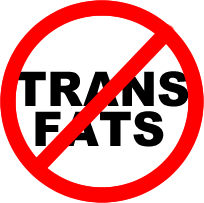I decided to talk on something different than beauty today, since many have been asking me about this question. Its all about fats and cholesterol and the controversial studies that came out this year about the use of statins and whether they are actually beneficial or not and that fats are not the main culprit of disease, rather it is sugar.
So this is my personal opinion based on the observations and studies I have read.
Is fat good or bad?
In the past, we were lead to believe that by taking fat you will become fatter as it only made sense that what we ate, stores in our body. However, over time, with advancement of technology, we have started to understand how our body processes really work and we discovered that this is actually not true.We discovered that sugar is the real culprit in glucose, galactose, sucrose and fructose forms -i.e. refined sugars especially. When we take refined carbohydrates or any form of sugar, it causes our blood glucose level to spike, and thus increases the amount of insulin produced to reduce the blood sugar level and keep it within acceptable range. This causes a contraction of the pancreas, that may lead to damage of pancreatic cells.When we lose the capability to normalise our blood sugar level, it means we have diabetes. So what happens to the sugar that is being taken by the insulin out of the bloodstream, it is sent to the liver and then later stored as fat. You read me correctly, the sugar gets transformed into fats.
Fats are an essential part of our body as it is involved in the formation of hormones, regulating body temperature, as an energy store for the body, and important in the absorption of certain vitamins and minerals required to make your body function properly. In fact, most of the brain matter is built from fat, and fat also helps with the formation and growth of hair, nails,, skin and other organs.
So does it means we should eat fat?
Fats also come in different forms. You have the unsaturated fats and the saturated fats. And nowadays there are newer fat types called trans fats. What are unsaturated fats? Basically, they are fats that remain liquid in room temperature, i.e. your oils. Mostly are from vegetable oils, nuts and seeds. They are divided into monounsaturated fats like olive, peanut, almonds, avocado, almond nuts, hazelnut, sesame seeds and pumpkin seeds, or polyunsaturated fats such as canola oil, soy,flaxseed, and fish oils. Saturated fats are mainly animal fats and those from coconut and palm products. Although recent studies have shown that there is not enough evidence to associated consumption of saturated fats to increased risk of cardiovascular disease, there are studies that show switching saturated to unsaturated fats are beneficial to increase the HDL levels in the body, reduce LDL and reduce insulin resistance.
What about trans-fat? What are they really?
Trans fatty acids are fats which has been hydrolysed into a more stable form i.e. from heating up of vegetable oils or hydrogenation process that causes them to harden into margarine or shortening. Some trans fats are naturally found in beef and some dairy products. Because of its stable nature, partially hydrogenated oils are frequently used in fast food restaurants and bakeries, as it can withstand frequent frying without breaking down. However, trans fat has proved harmful to our body, and contributes to the rise of LDLs, and increases inflammation. It reduces HDLs, and contributes to insulin resistance. There was a statistics that shows for every 2 spoons of trans fat, you increase your chances of cardiovascular disease by 23%.
My take on it?
Personally, I have started to switch all my fats to mainly natural fats i.e. unsaturated or saturated fats only. Margarine is completely banned from my fridge, but I do keep butter and occasional sour cream. I use olive oil for light cooking, and palm oil for frying (scarcely). I have reduced my intake of animal fats and I focus more on healthier fats from vegetable sources. I have at least 5 different types of oils in my house namely olive, virgin coconut, flaxseed, hemp seed and palm. I avoid eating fast foods or preserved foods and I avoid all forms of trans fat as much as possible except from beef and dairies like cheese. On top of all this, I've also restricted my refine carbohydrate intake. Sugar is banned from the house and thus honey is usually used as a sweetener instead. I drink my teas and coffee sugarless, and fruit juices are banned unless freshly squeezed. There is the occasional commercial ice lemon tea for my kids but sodas are a complete no no.
Between sugar and fat, my concern is more on the sugar, as the usage is much more rampant and it is much easily absorbed by our gastrointestinal system. Fat on the other hand, requires a longer time for absorption and most of the saturated ones just past through. Sugar seem to have a more drastic effect on our metabolism compared to fats,
The key is moderation, and also avoiding all the processed forms of foods and you would definitely feel a lot healthier.
So how to reduce sugar and fats? Talk to use today and we'll give you a run through of our weight loss, fat loss program.
For more information or to book an appointment, please contact us at drmmclinic@gmail.com or send a message to 012-9660852 or PM us through FB or Instagram.




No comments:
Post a Comment